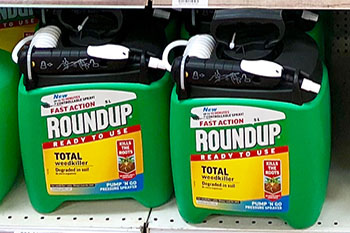
Since it first became commercially available in 1974 as the active ingredient in Monsanto’s RoundUp, glyphosate has proven to be an extremely effective weed killer. It’s been in wide use across the lawns of American homes, businesses, public spaces, and other locations, but glyphosate has come under scrutiny in recent years because of a potential link to certain types of cancer. According to a March 2015 publication from the World Health Organization, the chemical glyphosate was listed as “probably carcinogenic to humans” – a claim Monsanto denies.
However, the proof is mounting that such a link exists. Injured victims throughout the US are experiencing some success in litigation alleging the connection between glyphosate and cancer, so you may have legal options. An Atlanta, GA product liability attorney can explain in more detail, but it’s important to know the cancers that have been shown to be caused by glyphosate.
Non-Hodgkin’s Lymphoma (NHL): When the human body develops trouble with its immune system, it can lead to this type of cancer that originates in the lymphatic system. Medically speaking, NHL is what happens when you produce too many white blood cells called lymphocytes. As it relates to glyphosate exposure, NHL is a cancer that can affect:
- B Cells, which fight infection; and,
- T Cells that fight foreign invaders.
Breast Cancer: Glyphosate is also linked to breast cancer because it’s been defined as an endocrine disruptor, a phenomenon associated with adverse medical conditions. Researchers have noted that this chemical stimulates the growth of cancer cells in some prolonged exposure situations, yet manufacturers still fail to place warnings on the label of products containing glyphosate.
Your Rights as the Victim of Glyphosate Exposure: There are multiple lawsuits proceeding in courts throughout the US, filed by victims who developed these and other cancers linked to glyphosate. Many are based upon laws like Georgia’s strict product liability statute, which doesn’t require proof of fault. Manufacturers can be held accountable regardless of whether they knew their product was dangerous.
Other product liability cases involving glyphosate involve proving the elements of negligence. A victim must show that the manufacturer was negligent in allowing a potentially unsafe product to enter the consumer marketplace.
Under both strict liability and negligence theories for product liability, Georgia has a statute of limitations. You must file a lawsuit in court within two years after you were diagnosed with a glyphosate-related cancer, or should have discovered you suffered from such a condition. If you don’t initiate litigation before the statute of limitations expires, you’re forever barred from seeking compensation for your losses.
Speak with an Atlanta, GA Product Liability Lawyer About Your Options
If you contracted cancer or lost a family member due to exposure to glyphosate, time is of the essence to consult with an attorney about your legal remedies. Products liability claims are extremely complicated, especially when companies like Monsanto are on the other side. Our team is prepared to aggressively fight on your behalf, so please contact the Law Offices of Julie A. Rice to schedule a free consultation today.